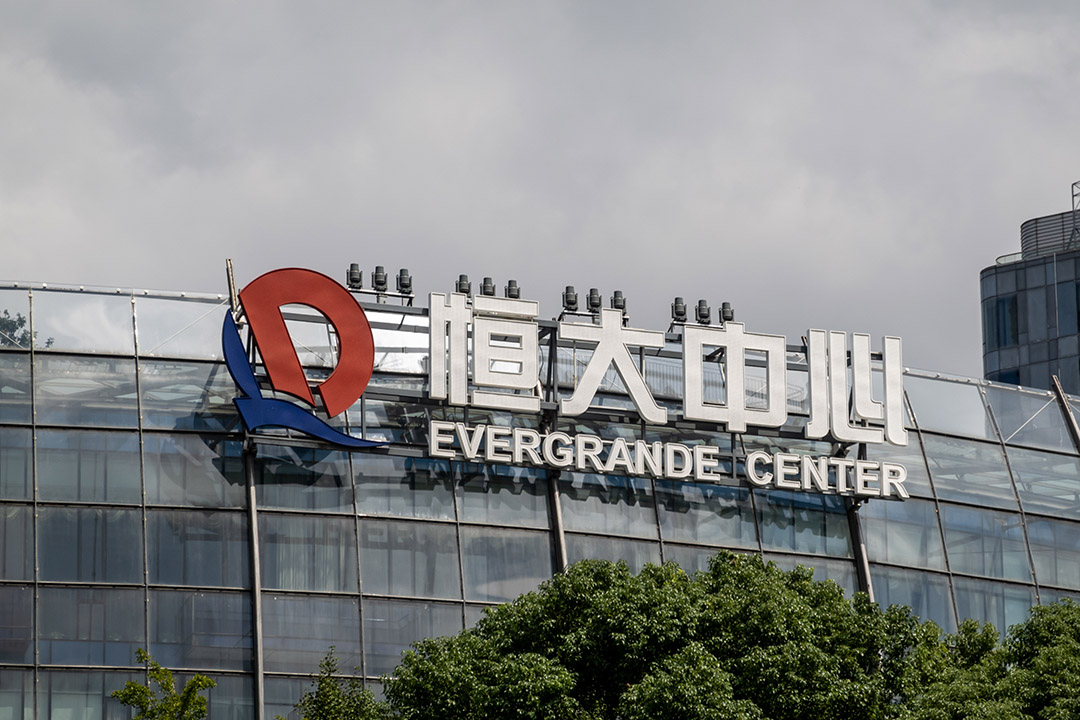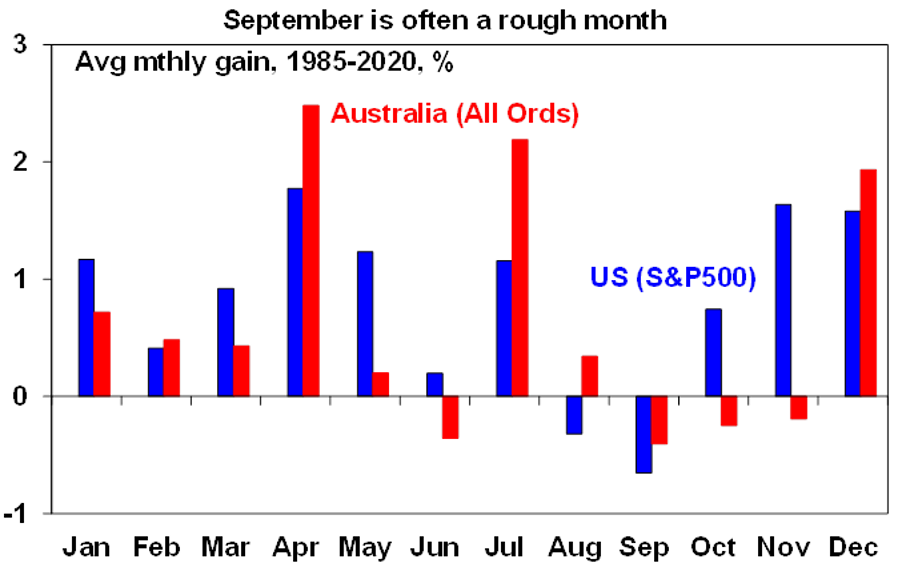

Our stocks market slumped 155 points or 2% yesterday and US markets were in dumping mode overnight, with the Dow Jones down over 900 points at one stage before the close. Thankfully the chart below showed there were players willing act in this sell off, as they see it as a buying opportunity!
Better hope they’re right and that the collapse of China’s 2nd biggest property developer, the misnamed Evergrande, won’t lead to a worldwide financial contagion, like what happened when Lehman Brothers failed in 2008 causing the Global Financial Crisis, as well as the Great Recession in the US from December 2007 to June 2009. This led to a global recession in 2009, which, incidentally, Australia was the only Western economy to avoid!
So we shouldn’t take this Evergrande $300 billion debt problem as an issue just for Beijing to deal with, though we could be very much dependent on the China leadership to solve this threat to the world economy and financial markets.
At the risk of sounding like the veteran comedian Rodney Rude, “I hate it , I hate it when…” the media over-hypes financial market dramas. As someone who has been in the media since 1985, I know journalists live for scary headlines, driven by their bosses who know they sell more newspapers, ads and media content when you can scare your readers, viewers or listeners.
When I did my finance program — SWITZER — on the now ‘retired’ Sky News Business Channel, I used to do a 6.20pm cross on the Sky News Channel looking at the big business story of the day and that’s when I learnt from news readers like Jim Waley and Mike Willesee Jnr, that “if it bleeds, it leads!”
That said, when markets go long on madness and mayhem, media bosses often look for those money men and women who’ve seen it all before.
I always argued that the GFC turned my once-a-week money show into a four-night a week 7pm anchor program for the channel, because the market crash and fallout meant viewers wanted someone with grey hair or no hair to explain what was going on and what was likely to happen.
It’s all very well to publish scary headlines when the news is scary but someone has to tell the audience just how scared you should be.
In fact, I got so tired of excessive negative headlines in the media that I created a daily column on this website showing that there was actually improving and better news that was going unreported. One theme I explored was that we might not go into recession, which turned out to be on the money.
So to the current problem that’s bound to take stocks down today, again.
Two weeks ago, I listed about eight reasons for a sell-off from inflation concerns in the US, a poor jobs number in the US in August, the Fed cutting back of stimulus and the fact that the S&P 500 Index, which measures stock price rises was up 32% in a year!
A pullback (i.e. a fall of under 10%) was overdue and even a 10% plus sell off would not be historically crazy either. Throw in the fact that September is the worst month for stocks (which I also pointed out) then what we are seeing on share markets now is all understandable.
( https://switzer.com.au/the-experts/peter-switzer/us-market-wobbles-what-me-worried/ )
By the way, at that time, Evergrande’s problems were not on the public record and it does add a new curve ball, which I’m now processing to comprehend the wider investing implications.
For the record, over the last 35 years, September has averaged the weakest month of the year for both the US and Australian share markets. Need visual proof? Well, check out this chart from Shane Oliver from AMP Capital.

I think the critical issue is to work out whether Evergrande is another Lehman Brothers waiting to happen, which could bring down the world’s financial system.
Right now, China experts say Evergrande is in debt to Chinese lenders and the financial system impact is not like Lehman’s reach into the world’s money markets with the GFC.
However, as the second biggest developer in China, it explains why iron ore prices and our big miners’ share prices are diving. And if this affects China’s economic growth rolling into 2022, then we might have to reduce our expectations about the share prices of companies that do well when the global economy booms.
Right now we have more questions than answers and the consensus view is that Beijing will do something to minimise the overall economic fallout because lots of Chinese people invest heavily in property.
However, the boys in Beijing have been pretty hard on their local investors and companies lately, so we wait with bated breath on what steps the Chinese leadership takes with Evergrande.
This one-day chart of the US stock market shows that after 3pm US investors started buying back into the market after the early sell off. That suggests the market thinks the Evergrande challenge is manageable.
S&P 500 one day

The simple facts are we don’t know what will happen but my best guess is that China will manage this crisis because it’s in its interests to do so, but iron ore prices and related share prices of products used in developments could be in trouble for a while.
That said, I suspect that some time in the future, provided Beijing plays ball, this sell off will be remembered as a buying opportunity, but not yet. Definitely not yet!